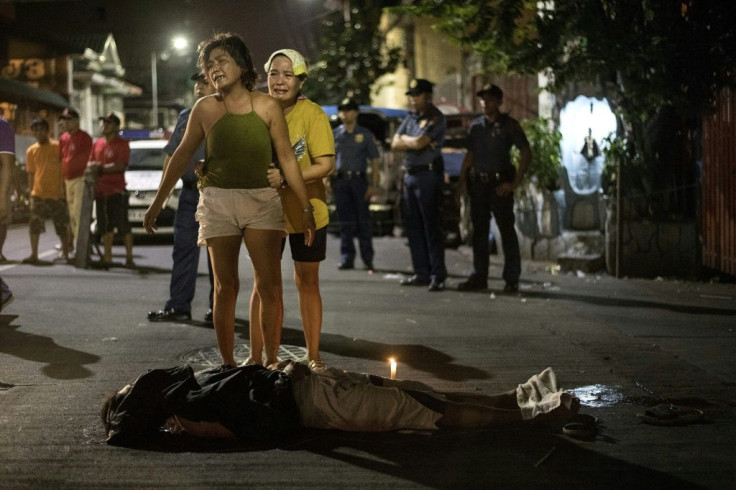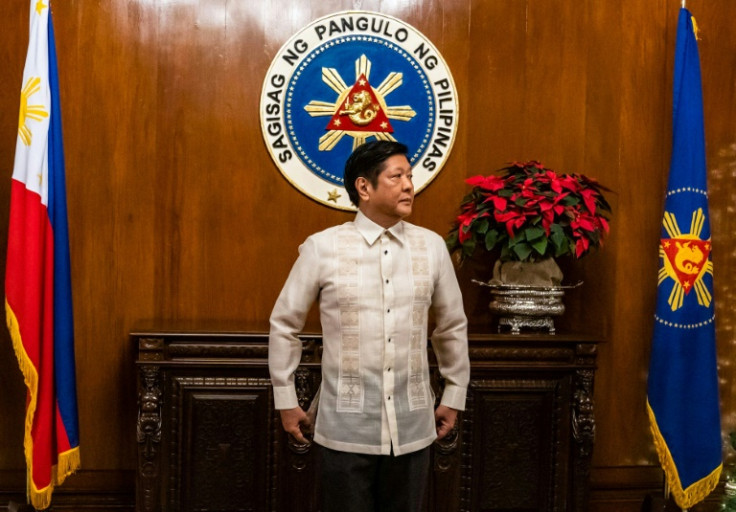Philippines Human Rights Violations Continue Under Marcos Jr.; Hundreds Still Die In 'Tokhang': Watchdog

KEY POINTS
- Filipino human rights defenders said there had been 227 drug war-related killings under Ferdinand Marcos Jr.
- Philippine government data put the "tokhang" death toll at 6,235 as of early 2022
- A Filipino activist recounted her abduction during a United Nations side event last week
Human rights violations are continuing in the Philippines under the administration of Philippine President Ferdinand Marcos Jr., according to Filipino human rights defenders.
The Philippine Universal Periodic Review Watch said it had recorded 227 killings related to the ongoing anti-illegal drug police operations, known as "tokhang," since Marcos took office in June 2022.
"What I'm saying is that one killing is one too many and 227 is not a small number," Philippine UPR Watch convenor Mervin Toquero told Philippine news outlet ABS-CBN News Channel's "Rundown" Monday.
Oplan Tokhang, which came from the words "toktok" (meaning knock) and "hangyo" (meaning plead), is the flagship anti-illegal drug program of Marcos' predecessor, former Philippine President Rodrigo Duterte.
In March of last year, the Philippine Drug Enforcement Agency (PDEA) said at least 6,235 had been killed by the government's deadly war against drugs since Duterte took office on June 30, 2016, the Philippine Daily Inquirer reported.
However, data gathered by Philippine human rights groups revealed that as many as 12,000 to 30,000 Filipinos had been killed by bloody police operations.
Toquero, who serves as the program secretary for faith, witness and service of the National Council of Churches in the Philippines, also highlighted the human rights violations against Filipino human rights defenders.
During a side event of the 52nd Regular Session of the United Nations Human Rights Council in Geneva, Switzerland, last week, Philippine UPR Watch presented abduction survivor April Dyan Gumanao, the regional coordinator of the Alliance of Concerned Teachers (ACT).
Gumanao said she and her partner Armand Dayoha were abducted by suspected state agents while disembarking from a ferry at the Cebu port in January.
Gumanao said they were interrogated while blindfolded and handcuffed and underwent psychological torture in the five days they were held by abductors.
As of this writing, the couple's abductors are still at large, and the Philippine National Police has denied involvement in the incident.
Gumanao emphasized the importance of bringing the plea for justice and accountability for human rights abuses in the Philippines to the international stage.
"For us victims, it's very difficult to seek for justice and accountability, to ask for assistance from our authorities who are the very persons suspected to be the ones who have done that abduction," Gumanao told ANC's "Rundown."
Philippine UPR Watch convenor Cristina Palabay said the Marcos administration has provided only "superficial" steps in resolving human rights abuses.
Palabay warned that state actors and perpetrators would continue violating Filipinos' rights due to a lack of accountability.
Speaking before a gathering of representatives of U.N.-member states in Geneva earlier this month, Philippine Justice Secretary Jesus Crispin Remulla insisted that the country has a "fully functioning justice system."
Remulla said "there is no culture of impunity" in the Philippines, arguing that the government is going after individuals "who have breached the bounds of law, state actors included," CNN Philippines reported.
"We make clear, extrajudicial killing has never been and will never be state policy," he added.

© Copyright IBTimes 2025. All rights reserved.






















